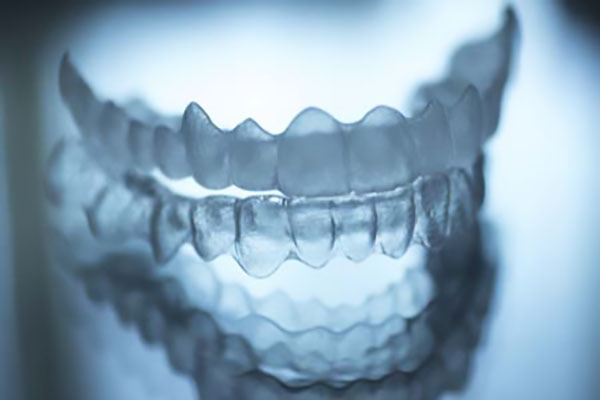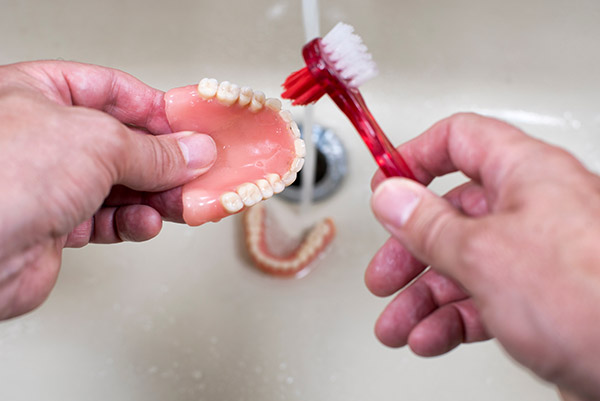Dental Problems That Invisalign Can Treat

Invisalign® is one of the most highly recommended treatment options among dentists as it can treat a range of concerns. By learning more about the issues that Invisalign® is intended to treat, patients will know whether it is worth pursuing. Of course, each patient’s complication is unique, and dental professionals can customize treatment based on desires and needs.
When to consider Invisalign® treatment
Essentially, Invisalign® can treat the same jaw and teeth alignment issues that traditional braces can treat, although Invisalign® is typically for mild to moderate cases. The following are four of the more common reasons a dental professional may recommend Invisalign® aligners to a patient.
Crooked teeth
Crooked teeth are one of the most common reasons patients decide on Invisalign® treatment. Teeth might be crooked or improperly aligned, due to a variety of reasons. Invisalign® treatment has evolved and it is now used to treat patients with more severe issues of crooked teeth. General dentists can come up with a unique treatment plan to ensure teeth are safely and effectively moved into a more attractive position if they are crooked.
Overcrowding
Overcrowded teeth tend to look crooked, but it is a little more of a complex issue to fix. Overcrowding is generally the result of a jaw that is too small or teeth that are slightly larger than average. When this occurs, teeth may become crooked as they do not have the space to settle in the right position. Fortunately, Invisalign® from a general dentist can address this concern. The dentist may need to provide preparation to make room for teeth to shift properly, however. This may include removing wisdom teeth, using spacers and utilizing other preparations.
Spacing issues
Overcrowding is considered a spacing concern, but spacing issues can also be an issue with too much space between teeth. Gaps between teeth are essentially the opposite problem as overcrowding, and it typically results from a large jaw, small teeth or both. For mild to moderate cases of gaps, Invisalign® is often an excellent solution. While gaps between teeth do not often cause an oral health concern, some feel insecure about the appearance and benefit from Invisalign® treatment to bring teeth closer together.
Jaw misalignment
A jaw misalignment often exists along with crooked teeth, overcrowding and other teeth alignment concerns. Most notably, Invisalign® can fix underbites, overbites and crossbites. Through the use of Invisalign® precision cuts, which are elastic attachments to Invisalign® aligners, patients can fix different types of jaw misalignments. With that said, it is important to note that Invisalign® is for mild to moderate jaw misalignments, whereas traditional braces or surgery may make for a more ideal solution for severe cases.
Find out more about Invisalign® today
It is encouraged for all who are interested in achieving a more attractive smile through Invisalign® treatment to reach out today to arrange a consultation visit. During the visit, general dentists can discuss all available treatment options and make a recommendation based on the dental problem at hand.
Are you considering Invisalign® in the Sunnyvale area? Get more information at https://stonecanyondental.com.
Check out what others are saying about our services on Yelp: Read our Yelp reviews.
Recent Posts
If you are new to the denture world, you may be confused when you think of toothbrushes and denture care. Most people have this misconception that since you have dentures, you no longer have to brush your teeth. This statement couldn’t be any more wrong. Brushing is just one important step in caring for your…
You have probably heard of Invisalign® teeth-straightening treatments. This process can be effective at changing the appearance of your teeth. If you are unhappy with how crooked your teeth look and how this affects your smile, talk to your dentist. You might be a good candidate for this treatment. There are some signs that indicate…
Denture care is an important part of denture maintenance. You depend on your dentures to perform day-to-day tasks, and it's not uncommon for them to need repair or replacement over time. The key to keeping your dentures in good shape is making sure that they are cared for properly. Denture care goes beyond just brushing…
Denture care is one of the most essential steps in preventing gum disease. Gum disease can lead to tooth loss and other health issues like heart disease, stroke, and diabetes. Dentures are a common and vital dentistry tool dentists use to repair tooth damage, fill cavities or even replace missing teeth. Dentures play a considerable…







